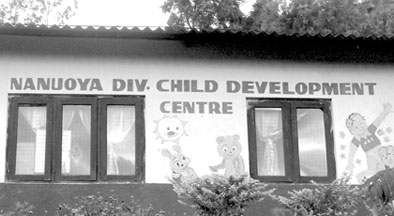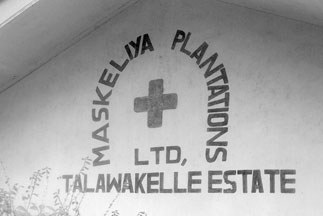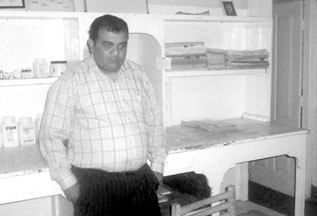|
Regional Plantation Companies investing in welfare
programs:
For estate communities
Regional Plantation Companies (RPC) say they spend millions of rupees
annually on welfare measures in their estates. These include child
development, educational assistance, healthcare facilities and housing
assistance for plantation populations that number close upon one million
people.
 |
|
A child
development centre |
The RPCs represent Sri Lanka’s formal plantation sector, which is
regulated by the Government and has an organized workforce of nearly a
quarter of a million people, represented by many active trade unions.
Child development and education
All RPCs pay special attention to child development in their estates,
starting from the early childhood years.
“Those days the estates had something called the Pulle Maduwa to keep
the children. These were just places for the mothers to leave the
children when they go to work. Those children were not given education.
But now, we have what we call ‘Child Development Centres,” said
Talawakelle Estate, Nanuoya Division Child Development Centre, Child
Development Officer, D.S.R. Iranganie.
“In the Child Development Centres children are given proper attention
for their physical and mental development. So these children, when they
leave to go to school, are a lot more advanced than children that left
the Pulle Maduwa,” said Iranganie.
The Talawakelle Estate, which has a total resident population of
3,365 including 651 employees, belongs to the Maskeliya Plantation
Company. Maskeliya Plantations spent Rs 25 million in the 2008/9
financial year on Child Development Centres, among its 18 estates. The
company spent Rs 138 million in total, for all types of welfare
activities in its estates.
The Child Development Centres include a crŠche for infants between
the ages of three months and three years and a pre-school for children
between the ages of three years to Five years.
Mattakelle Estate, which belongs to Talawakelle Plantations, has a
similar Child Development Centre used by its resident families. Last
year (2008), Mattakelle Estate, that has a total population of 3,068
including 871 employees, spent Rs 1.29 million on its Child Development
Centres. Meanwhile, in 2008, the Talawakelle Plantation Company, that
manages 17 estates, spent Rs 86.1 million on overall community welfare
and another Rs 33.5 million on new infrastructure development.
The Child Development Centres in the two estates also help improve
child nutrition and introduce young children to better eating habits
through feeding programs.
“We give them a different nutritious meal every day and milk. This
way they get used to eating more nutritious foods,” said one of the two
assistants at the Child Development Centre in Mattakelle Estate
Jebamalar Mary.
The estates say the investment in child development is paying off. In
2008, Talawakelle Estate alone, saw six young people entering the
Peradeniya University.
 |
 |
|
Estate
Medical Officer M S J de Silva |
“From our estates we now have young people going to the university.
These days most children will at least study up to their Ordinary
Levels, if not going as far as Advanced Levels and university. When
children enter the university also, we help them by giving them a
monthly grant of Rs 2,000,” said Talawakelle Estate, Superintendent,
Dhanapala Dissanayake.
Talawakelle Plantations also reported seven young people entering the
university, assisted by financial support from the plantation company.
“Higher education among young people from estate communities is not a
rare phenomenon anymore. Last year, a youth from Somerset Estate entered
the Medical Faculty of the Rajarata University,” said Talawakelle
Plantations, Human Resources and Quality Management Development, General
Manager, Theja Dharmaratna.
Improved health facilities
Health services at the two estates are also provided free for estate
communities, through estate and Government contributions. The estates
have provided the premises for Maternity Clinics and Medical Centres.
Medical attention and basic medicines are available at the Medical
Centre through a trained Estate Medical Officer. A government Medical
Officer of Health (MOH) visits the estate Maternity Clinic regularly, to
check on expecting mothers. A trained midwife is permanently stationed
at the estates and in both estates all new child-births are now
conducted at the Lindula District Hospital.
“Maternal and child mortality have improved vastly these days and
there are no more deaths at child birth. Even the underweight births
have reduced drastically,” said the Talawakelle Estate, Estate Medical
Officer, M S J de Silva.
The improved health indicators are attributed to a full range of
health services made available within the estates themselves.
“These days all the new babies are delivered in proper hospitals
under proper medical supervision. So that in itself is a vast
improvement compared to the old days. Families at this estate generally
go to the Lindula Hospital for deliveries. But until the point of
delivering the baby, the mothers are under constant medical supervision
at the estate itself. They are taught how to care for themselves and how
to prepare for the baby and even told what they need to take to
hospital. The mothers are also given nutritional supplements like iron,
calcium and vitamin C tablets,” said de Silva.
An ambulance is available for estate medical emergencies such as
child birth, accidents or illnesses that cannot be treated within the
estate, and for patient transfers. To improve overall health and
sanitation habits both estates also conduct ‘Free Feeding’ programs that
provide milk and flour, and also facilitated health clinics and health
education programs for estate communities.
“We provide free treatment at the estate clinic. Anyone we cannot
treat, is transferred to Lindula District Hospital. That is where the
child deliveries also take place. We also do medical clinics and
nutrition programs, as well,” said Mattakelle Estate, Estate Medical
Assistant, R Yuwaraj.
In 2008, Mattakelle Estate spent Rs 10.7 million on providing various
medical facilities while Maskeliya Plantations spent Rs 50 million on
the provision of medical facilities among its 18 estates, including
Talawakelle Estate.
Land for housing and supplementary incomes
As part of their welfare programs the estates also look after
existing housing facilities for estate communities and invest in new
housing.
In 2008, Mattakelle Estate spent Rs 1.3 million on the upkeep of line
houses and also provided estate land to build new houses. From
1999-2001, under a loan scheme from the National Housing Development
Authority (NHDA), facilitated by the estate, 141 new houses were built
for families living in Mattakelle Estate.
Another 200 new houses are proposed for 2010. Estate families at the
Mattakelle Estate are also allowed to use estate lands for vegetable
cultivations that generate additional incomes on top of their plantation
work wages.
“About 7- 10 perches of land are given to build a new house. By now
about five hectares of estate land have been allocated to build new
houses.
These new houses are mainly for families that do not have their own
homes, like newly married couples. Another 20 - 30 acres have been given
to families to cultivate vegetables. These vegetable cultivations also
bring additional incomes for them,” said Mattakelle Estate, Manager,
Gimhan Jayatilleke.
The Talawakelle Estate has also made similar investments in housing
maintenance and building new houses. From 2005 to 2008, the estate spent
Rs 1.6 million on upgrading and maintaining available housing
facilities.
The estate also provides land for estate families to build new homes.
By now, under the NHDA and Plantation Human Development Trust (PHDT)
Housing Scheme, 92 new houses have been built. Another 185 new houses
have been built under the Upper Kotmale Project.
The two estates also provide many other types of welfare services for
its resident populations and say these investments will continue to
improve the living standards of the populations living in their estates.
|



